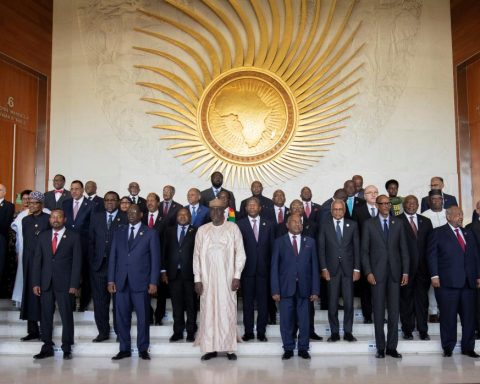Nigeria’s government has introduced sweeping tax reform bills to broaden the country’s revenue base and reduce its reliance on oil. With interest rates soaring above 27% and inflation surpassing 30%, the move comes at a delicate time for the economy. While diversification is crucial for long-term stability, questions are being raised about the impact of these reforms on small businesses and low-income households.
“The idea behind the reforms is logical,” says Dr. Ibrahim Adedeji, an economist explained. “But the approach is flawed. You don’t introduce such drastic measures during an economic crisis without first providing a cushion for vulnerable groups.”
Join our WhatsApp ChannelWhy Nigeria Needs Tax Reform
Nigeria’s over-reliance on oil revenue has long been a point of vulnerability. With oil accounting for nearly 90% of foreign exchange earnings, fluctuations in global oil prices often send shockwaves through the economy. Diversifying the revenue base through tax reform is seen as a way to stabilise the economy and fund critical sectors like healthcare, education, and infrastructure.
Mr. Paul Okechukwu, a financial analyst, agrees with the need for reform but warns of the dangers of poor timing. “Countries like Ghana and Rwanda have successfully implemented tax reforms by adopting a gradual approach. If Nigeria’s government follows this model, it will reduce the immediate shock to small businesses and households,” he says.
While supporters highlight the potential for long-term benefits, critics argue that Nigeria’s current economic conditions are too fragile for sudden tax hikes. With food inflation at an all-time high and small businesses struggling to stay afloat, many fear that these reforms could do more harm than good.
Impact on Small Businesses
Small businesses are seen as the backbone of Nigeria’s informal economy. However, many are already struggling with high operational costs, and additional tax burdens could push them to the brink of closure. This sector’s role in Nigeria’s economic stability cannot be overstated, as it employs a large portion of the workforce.
READ ALSO: Tax Reform Bills Vs. Nigeria’s Education: Uncertainty Looms Over Future Of Tertiary Institutions
“How do you expect a small shop owner who is barely making ends meet to pay additional taxes?” asks Sarah Okon, a market trader in Lagos. “If they increase our taxes, we’ll have no choice but to close our shops.”
Experts have called for a more gradual implementation of the reforms to prevent economic shocks. Phased tax adjustments, coupled with relief measures like tax credits or subsidies, could ease the burden on small businesses and protect jobs.
The Burden on Low-Income Households
Another major concern is the disproportionate impact on low-income households. Without targeted relief measures such as tax credits or subsidies, critics argue that the poorest Nigerians will bear the brunt of the reforms. The government’s failure to address this aspect of the policy has drawn sharp criticism from civil society groups and financial experts.
“If the government wants to increase taxes, they must provide a social safety net for the poor,” says Dr. Aisha Bello, a development economist. “Without that, this reform will be seen as a tool to oppress the already struggling masses.”
Nigeria’s history of fiscal opacity and perceived misuse of public funds further complicates public acceptance. Citizens are less likely to support reforms if they do not see tangible improvements in public services such as healthcare, education, and infrastructure.
Learning from Other African Countries
Other African nations, like Ghana and Rwanda, have successfully executed tax reforms. Their strategy involved gradual implementation, public engagement, and transparent use of tax revenue. By demonstrating clear benefits to citizens, these countries were able to build trust and secure public buy-in.
Nigeria’s challenge lies in overcoming skepticism. If the government fails to communicate how tax revenues will be utilised, public resistance is inevitable. Experts suggest that the government should prioritise transparency and accountability to win the trust of its citizens.
“If people can see where their taxes are going, they’ll be more willing to comply,” says Mr. Okechukwu. “It’s about trust. Right now, trust in the government is low.”
A Path Forward for Nigeria’s Tax Reforms
For Nigeria’s tax reform bills to succeed, experts believe a recalibration of strategy is essential. Phased reforms would allow businesses and households to adjust gradually. Targeting high-profit industries such as telecommunications and banking, rather than small businesses, could ease the pressure on low-income earners.
“Reforms should be data-driven and inclusive,” Dr. Adedeji advises. “The government should introduce digital tax collection systems and strengthen enforcement, but they must also offer relief to vulnerable groups.”
Experts also stress the need for greater transparency. Citizens must see clear evidence of how their taxes are being used to improve public services. Without this, compliance will remain low, and the government’s efforts to diversify its revenue base could backfire.
“Trust is the currency of governance,” Dr. Bello concludes. “If citizens see their taxes funding better schools and hospitals, they will support the reform. Without trust, however, the whole system crumbles.”
Nigeria’s Tax Reform Bills represent a crucial step toward economic diversification. While the logic behind the initiative is sound, its execution is under scrutiny. Small businesses and low-income households are at risk, and without targeted relief measures, public backlash is inevitable. By adopting a phased approach, promoting transparency, and prioritising equity, Nigeria’s leaders can foster public trust and achieve a more resilient economy. The path to successful reform is narrow but navigable—if approached with caution and clarity.
Emmanuel Ochayi is a journalist. He is a graduate of the University of Lagos, School of first choice and the nations pride. Emmanuel is keen on exploring writing angles in different areas, including Business, climate change, politics, Education, and others.


















